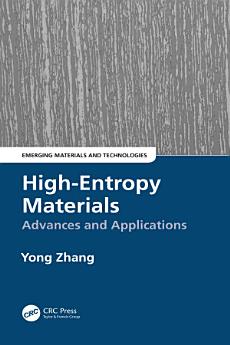High-Entropy Materials: Advances and Applications
この電子書籍について
• Describes, compositions and processing of high-entropy materials.
• Summarizes industrially valuable alloys found in high-entropy materials that hold promise for promotion and application.
• Explains how high-entropy materials can be used in many fields and can outperform traditional materials.
This book is aimed at researchers, advanced students, and academics in materials science and engineering and related disciplines.
評価とレビュー
著者について
Yong Zhang obtained his PhD from the University of Science and Technology Beijing (USTB). After postdoctoral work at the Institute of Physics, Chinese Academy of Science, he worked as a research fellow at the National University of Singapore as part of the Singapore-Massachusetts Institute of Technology Alliance. He became a professor at the USTB in 2004 and received an award from the Ministry of Education of China under the New Century Excellent Talents (NCET) in Universities program in 2005. His main research interest is the development of new materials in bulk, film, and fiber forms by using the high-entropy and materials-genome-initiative (MGI) strategies.








